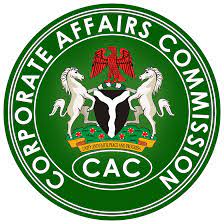Implications of the new Expatriate Employment Levy
 Implications of the new Expatriate Employment Levy
Implications of the new Expatriate Employment Levy
On Tuesday, 27 February 2024, President Bola Ahmed Tinubu, GCFR, launched the Expatriate Employment Levy (EEL). The EEL is a government-mandated contribution imposed on organizations which engage expatriate workers in Nigeria, subject to certain exemptions. Its objectives are to promote skills transfer and knowledge sharing, balance economic growth and social welfare, enhance collaboration between public and private sectors and address demographic shifts.
The EEL will serve as a mandatory document like a passport, in which every eligible expatriate will be required to present the EEL card at the time of exit and entry into Nigeria. Several countries, especially in the middle east, have implemented expatriate levies or similar measures to grow their revenue base or control the influx of expatriates. So, Nigeria is not alone in this regard.
The levy, scheduled to commence on Friday, March 15, 2024, comes as part of the government’s effort to bolster the nation’s economy and empower its workforce. The Nigeria Immigration Service (NIS) being the government agency saddled with the statutory mandate of “control of persons entering and leaving Nigeria,” shall be responsible for determining which expatriates fall within the EEL purview and enforcing the levy in line with relevant provisions.
Details
The following are important points to note about the EEL:
- The EEL is a mandatory levy imposed by the Federal Government on employers across diverse sectors in Nigeria, for hiring expatriate workers and is payable via an online portal online portal – www.eel.interior.gov.ng.
- The EEL is fixed at 15,000 USD for directors and 10,000 USD for other categories of expatriates. It is payable annually.
- The EEL is obligatory and payable by companies in Nigeria that engage expatriates in their workforce. The relevant companies encompass businesses of varying sizes in Nigeria, including private sector industries, multinational corporations, small and medium-sized enterprises (SMEs).
- The EEL is payable for non-citizen expatriate workers employed in Nigeria. This includes individuals holding certain types of work permits, visas, or other temporary residency arrangements, who work in Nigeria for 183 days or more within a fiscal year. In the case of expatriates with short-term employment, they shall be required to pay the EEL if they have spent an aggregate of 183 days or more within a fiscal year.
- Employers of expatriates are required and are responsible for maintaining accurate records, submitting timely reports and adhering to reporting deadlines, while the expatriates are required to ensure that accurate information is provided to the employer.
Reasons for imposing Expatriate Employment Levy
The objectives of EEL are to promote knowledge and skill transfer from expatriates to local employees. By attaching a financial commitment to the employment of expatriates, the government encourages employers to actively engage in training. This facilitates the development of local talents, thereby strengthening the domestic workforce over time.
To provide a balance between encouraging FDIs and safeguarding the interest of local workers. In this regard, EEL ensures that while expatriate workers contribute to economic development. In addition rights and opportunities of local employees are not compromised.
To encourage collaboration between government entities, industry associations, business stakeholders as well as provide a need for continuous dialogue and consultation between the public and private sectors while channeling policy making towards addressing the needs of various sectors and fulfilling broader national goals.
EEL will also address demographic changes such as aging population or shortage of skilled labor thereby encouraging businesses to prioritize local talent acquisition and invest in workforce development initiatives – ultimately safeguarding the nation’s long-term economic prosperity.
Increment of government revenue. The Nigerian government see this as an opportunity to increase revenue
Implications of Expatriate Employment Levy
The point must be made that maintaining expatriates in Nigeria is expensive. The imposition of EEL will only increase the cost. Companies who employ expatriates will increase the cost of their goods or services as their operating expenses increase. In the long run, the price of the goods or service might become unaffordable which would result in low sales.
It is out of necessity that companies bring in expatriates and as such any imposition that makes this provision expensive will discourage FDI and jeopardize projects requiring such expatriates. Foreign investors would be reluctant to invest funds.
More so, this would lead to inflation. The prices of goods and services will drastically go high and this would negatively affect the economy and its development.
The EEL levy could create a negative perception towards the economic policies by the Nigerian government. The likely perception by foreign investors would be that the Nigerian government is not accommodative to foreign workers. Hence, this would discourage them from wanting to invest in Nigeria
Recommendations
With the drive for FDI, the country needs a conducive business environment to attract these kinds of investment into the country. Imposing an unfavorable levy would only reduce the chances of getting FDI’s. Here are some ideas that can actualize the EEL motives and as create more room for FDI’s
Government should enforce the Local Content Act across board. This implies that companies can only bring expatriates for jobs that do not have local capabilities. This would mean a thorough enquiry for a local worker to do the job has been made. An expatriate can be brought in in such instance
Government should give concessions for executive training of the local labor force. This would increase the quality of the labor force thereby developing the economy at large. Making it more attractive for foreign investors at the same time.
Proper investment in education and technical skills would ensure a development in the quality of the local labor force. This would as well reduce the need for expatriates.
Should the government insist on this imposition, a downward review of the financial requirement should be made. The required fee should be affordable so as not to discourage foreign investment.
Conclusively, the government should also put necessary controls to ensure fund generated from this is judiciously used for social development. Government may tie all gains from this imposition to a particular social intervention and ensure none is diverted from this purpose.



